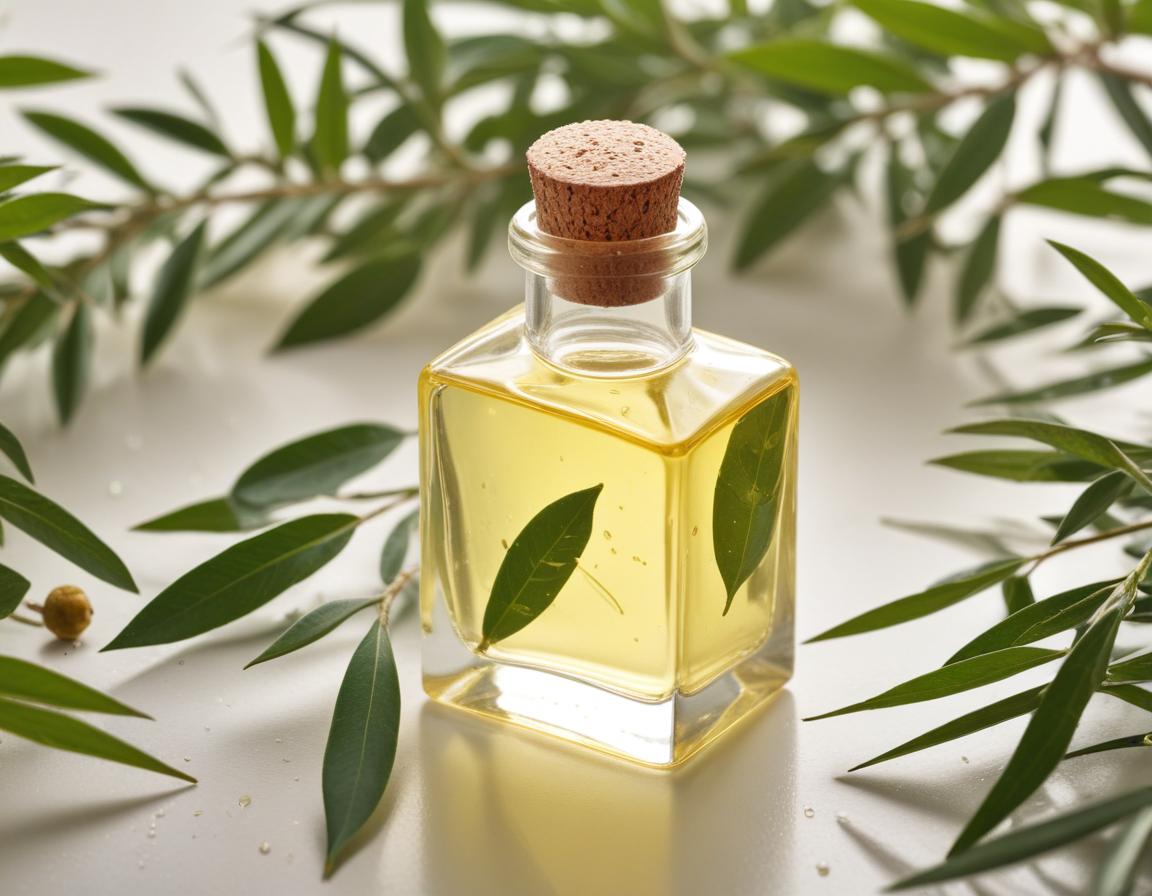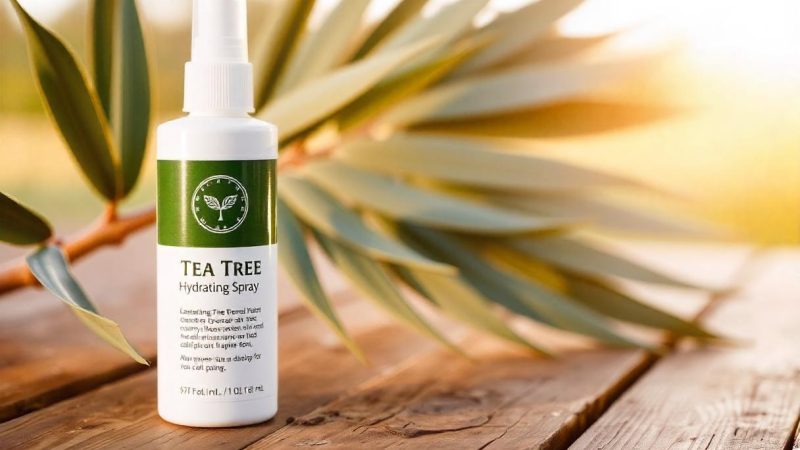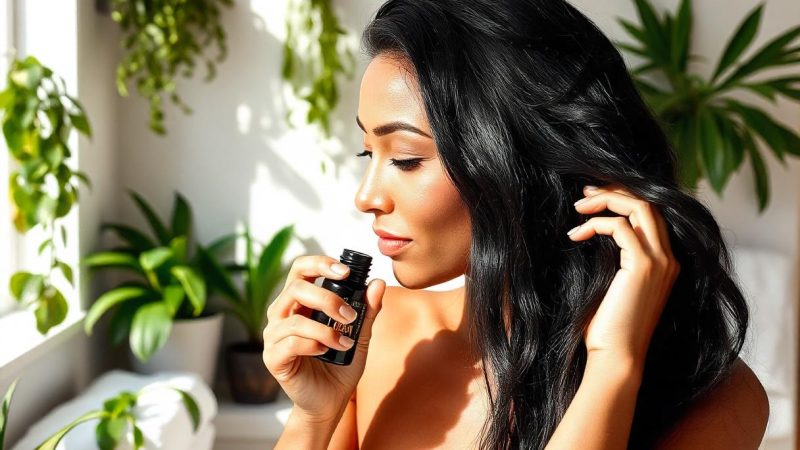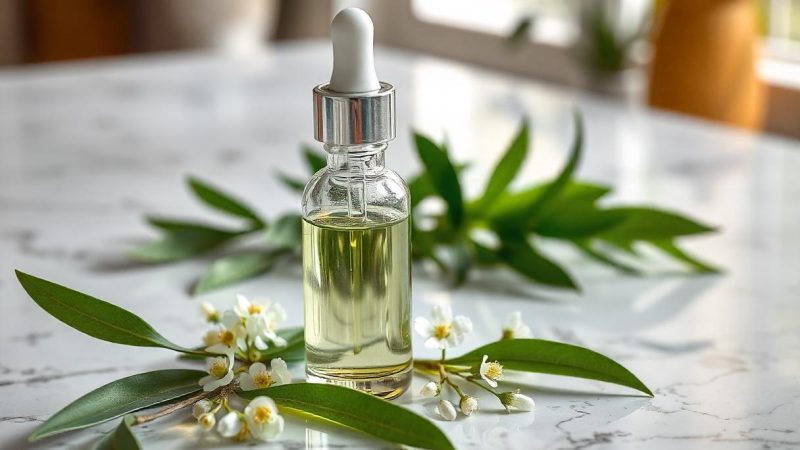Tea Tree Oil: Hair Care and Dandruff – Benefits, Uses, and Scientific Backing

Tea tree oil, derived from the Melaleuca alternifolia plant, has become a popular natural remedy for various health and beauty concerns. When it comes to hair care, tea tree oil is renowned for its ability to treat dandruff, promote a healthy scalp, and address hair loss concerns. Its antibacterial, antifungal, and anti-inflammatory properties make it an excellent addition to hair care routines, especially for those dealing with dandruff or scalp irritation. In this article, we explore how tea tree oil benefits hair health, particularly its role in treating dandruff and improving scalp conditions, while also delving into the scientific evidence supporting its efficacy.
What is Tea Tree Oil?
Tea tree oil is an essential oil extracted from the leaves of the Melaleuca alternifolia plant, native to Australia. For centuries, Indigenous Australians have used tea tree oil for its medicinal properties. In modern times, the oil has gained worldwide recognition for its potent antimicrobial effects, making it a valuable ingredient in hair care products designed to treat scalp issues like dandruff, itching, and flakiness.
Benefits of Tea Tree Oil for Hair and Scalp
Tea tree oil provides a host of benefits for both hair and scalp health. These include its ability to cleanse, treat dandruff, soothe irritation, and encourage hair growth.
1. Treats Dandruff
Dandruff, characterized by white flakes of dead skin on the scalp, is often caused by an overgrowth of a yeast-like fungus called Malassezia. This fungus feeds on the oils (sebum) secreted by the scalp, leading to irritation and flaking. Tea tree oil’s antifungal properties make it an effective remedy for dandruff.
- Scientific Backing: A study published in the Journal of the American Academy of Dermatology found that using a shampoo containing 5% tea tree oil reduced dandruff severity by 41% after four weeks of use. Participants also reported significant improvements in scalp itchiness and greasiness (Satchell, A., et al., 2002).
Tea tree oil helps combat the Malassezia fungus, while also reducing scalp inflammation, one of the root causes of dandruff.
2. Soothes Dry, Itchy Scalp
In addition to combating dandruff, tea tree oil can help soothe an itchy, irritated scalp. Its anti-inflammatory properties calm irritation, while its moisturizing effects help relieve dryness.
- Scientific Backing: A review published in Phytomedicine highlights tea tree oil’s ability to reduce inflammation and hydrate dry skin, including the scalp. The study concluded that tea tree oil’s anti-inflammatory actions helped soothe scalp irritation caused by dandruff or other scalp conditions (Hammer, K., et al., 2006).
3. Balances Oil Production
Tea tree oil can help balance the scalp’s natural oil (sebum) production, making it beneficial for both oily and dry scalps. An oily scalp is more prone to fungal overgrowth, which leads to dandruff, while a dry scalp can flake and become irritated. Tea tree oil’s ability to regulate oil production keeps the scalp balanced and healthy.
- Scientific Backing: A study published in The Australasian Journal of Dermatology showed that tea tree oil effectively reduced excessive oiliness on the scalp, reducing the risk of dandruff and scalp infections caused by excess oil production (Enshaieh, S., et al., 2007).
4. Promotes Hair Growth
Tea tree oil can also promote hair growth by improving scalp health. A healthy scalp is essential for strong, healthy hair growth. By reducing dandruff, irritation, and inflammation, tea tree oil creates a better environment for hair follicles, which may promote hair growth.
- Scientific Backing: Research in Toxicological Research suggests that tea tree oil may increase blood circulation to the scalp, stimulating hair follicles and potentially promoting hair growth (Kim, D., et al., 2012). Additionally, its ability to keep the scalp clean and free of dandruff helps prevent hair thinning associated with scalp inflammation.
5. Cleanses the Scalp
Tea tree oil’s natural cleansing properties help remove excess oil, dirt, and product buildup from the scalp, ensuring that hair follicles remain unclogged and healthy. Its antimicrobial effects can prevent scalp infections and improve overall scalp health.
- Scientific Backing: A study in the Journal of Investigative Dermatology confirmed that tea tree oil is effective at removing debris, bacteria, and fungi from the scalp, keeping hair follicles clear and promoting healthier hair growth (Carson, C., et al., 2006).
Tea Tree Oil for Dandruff Treatment
Dandruff is one of the most common scalp conditions, affecting millions of people worldwide. While many over-the-counter treatments are available, tea tree oil offers a natural, effective alternative for managing and reducing dandruff.
How Tea Tree Oil Treats Dandruff:
- Kills Fungi: The antifungal properties of tea tree oil target the underlying cause of dandruff, particularly the Malassezia yeast that thrives on the scalp’s oils.
- Reduces Flakiness: By soothing irritation and reducing inflammation, tea tree oil minimizes flaking, preventing the scalp from shedding excessive dead skin cells.
- Calms Itching: Tea tree oil’s anti-inflammatory actions help reduce the itchiness associated with dandruff, providing relief from one of the most uncomfortable symptoms of the condition.
How to Use Tea Tree Oil for Hair Care
Tea tree oil is highly potent, so it should always be diluted before use to avoid irritation. There are several ways to incorporate tea tree oil into your hair care routine:
1. Tea Tree Oil Shampoo
Many shampoos on the market are formulated with tea tree oil specifically for treating dandruff and soothing scalp conditions. You can also create your own tea tree oil shampoo by adding a few drops of tea tree oil to your regular shampoo.
- How to Use: Mix 2-3 drops of tea tree oil into a small amount of your shampoo. Massage it into your scalp for 2-3 minutes, then rinse thoroughly. Use this every time you wash your hair for best results.
2. Scalp Treatment
You can use tea tree oil as a direct scalp treatment by diluting it with a carrier oil, such as coconut or jojoba oil.
- How to Use: Mix 5-6 drops of tea tree oil with a tablespoon of carrier oil. Apply this mixture to your scalp, gently massaging it in circular motions. Leave it on for 15-20 minutes before rinsing out with shampoo. This treatment can be done 1-2 times per week to keep dandruff under control.
3. Tea Tree Oil Hair Mask
Incorporate tea tree oil into a nourishing hair mask to address scalp issues while moisturizing the hair.
- How to Use: Mix 3-5 drops of tea tree oil with ingredients like honey, yogurt, or aloe vera to create a hydrating mask. Apply it evenly to the scalp and hair, leave it on for 20-30 minutes, then wash it off with shampoo. This mask can be applied once a week.
Precautions When Using Tea Tree Oil on Hair
Although tea tree oil is a natural remedy, it is essential to use it properly to avoid adverse reactions:
- Always Dilute: Tea tree oil is very strong and should never be applied directly to the scalp or skin without being diluted with a carrier oil or other base.
- Patch Test: Before using tea tree oil, perform a patch test by applying diluted oil to a small area of skin to check for any allergic reactions.
- Avoid Sensitive Areas: Keep tea tree oil away from your eyes and sensitive areas of the skin, as it can cause irritation or burning.
- Consult a Professional: If you have pre-existing scalp conditions like psoriasis or eczema, consult a dermatologist before using tea tree oil as part of your hair care routine.
Conclusion
Tea tree oil is a powerful natural solution for treating dandruff, soothing scalp irritation, and promoting healthy hair growth. Its antifungal, antimicrobial, and anti-inflammatory properties make it an effective treatment for common scalp conditions like dandruff, while its ability to cleanse and balance oil production helps maintain scalp health. Whether used in shampoos, scalp treatments, or hair masks, tea tree oil is a versatile and beneficial addition to your hair care routine, backed by scientific research and centuries of traditional use.
References
- Satchell, A., et al. (2002). A randomized, controlled trial of tea tree oil in the treatment of dandruff. Journal of the American Academy of Dermatology.
- Hammer, K., et al. (2006). Tea tree oil: antimicrobial and anti-inflammatory effects in the treatment of skin conditions. Phytomedicine.
- Enshaieh, S., et al. (2007). The efficacy of tea tree oil in treating scalp conditions. The Australasian Journal of Dermatology.
- Kim, D., et al. (2012). The role of tea tree oil in hair growth and scalp health. Toxicological Research.
- Carson, C., et al. (2006). Antimicrobial properties of tea tree oil and its potential in hair care. Journal of Investigative Dermatology.






